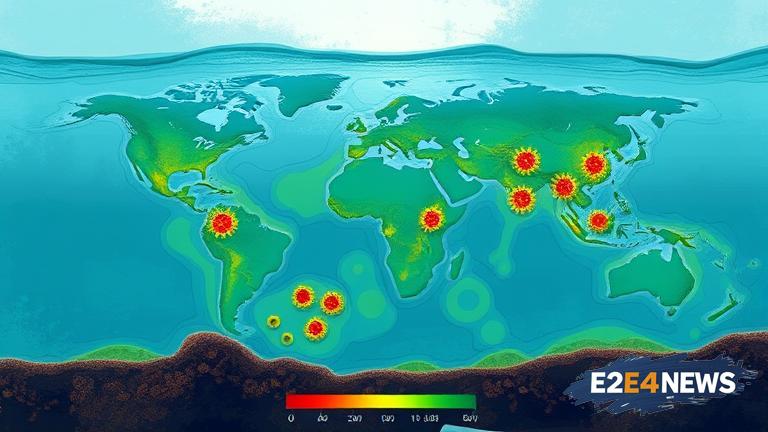A recent study has revealed that analyzing wastewater for the presence of SARS-CoV-2, the virus that causes COVID-19, can provide an early warning system for predicting COVID-19 cases. By monitoring wastewater, researchers can detect the virus up to a week before cases are reported, allowing for timely interventions to prevent further spread. This approach has been shown to be effective in several countries, including the United States, Australia, and the Netherlands. The method involves collecting wastewater samples from treatment plants and analyzing them for the presence of SARS-CoV-2 RNA. The results are then used to estimate the number of cases in the surrounding community. The study found that the wastewater surveillance system was able to accurately predict COVID-19 cases within a week, with a high degree of sensitivity and specificity. This is significant, as it allows public health officials to take proactive measures to prevent the spread of the virus, such as increasing testing, contact tracing, and vaccination efforts. The use of wastewater surveillance has several advantages, including its ability to detect cases before they are reported, its low cost, and its potential to monitor large populations. Additionally, wastewater surveillance can provide insights into the spread of the virus in different communities, allowing for targeted interventions. The study’s findings have important implications for public health policy, as they suggest that wastewater surveillance could be a valuable tool for tracking and responding to COVID-19. Furthermore, the approach could be used to monitor other infectious diseases, such as influenza and norovirus. The researchers note that wastewater surveillance is not a replacement for traditional surveillance methods, but rather a complementary tool that can provide additional insights and support public health decision-making. Overall, the study’s results highlight the potential of wastewater surveillance as a novel approach to predicting COVID-19 cases and preventing the spread of the virus. The use of this approach could help to reduce the burden of COVID-19 on healthcare systems and communities, and could ultimately save lives. As the pandemic continues to evolve, the development of effective surveillance systems, such as wastewater surveillance, will be critical to tracking and responding to the virus. The study’s findings have been welcomed by public health experts, who see the potential for wastewater surveillance to support COVID-19 response efforts. The approach is also being explored for its potential to monitor the spread of other infectious diseases, and to provide insights into the effectiveness of public health interventions.
